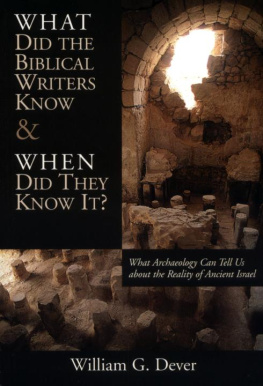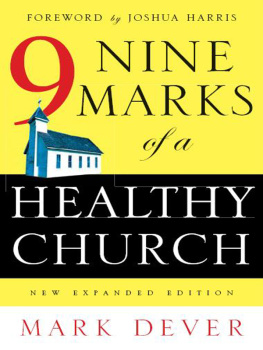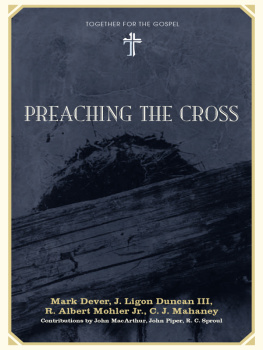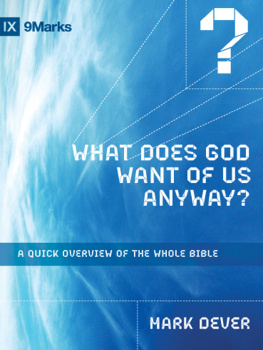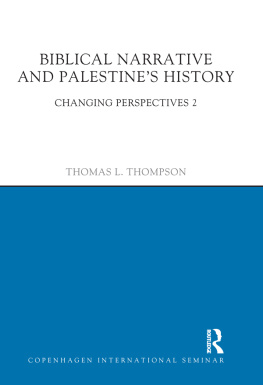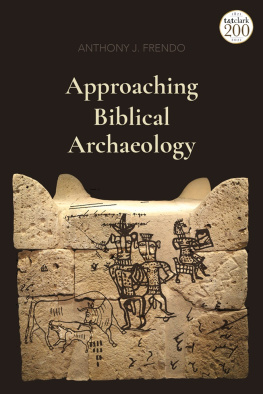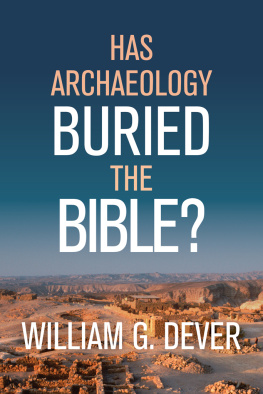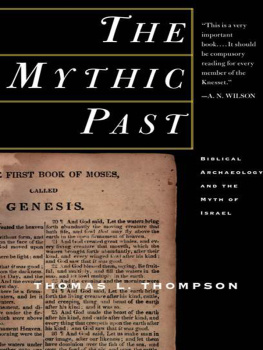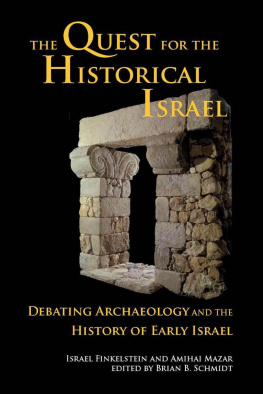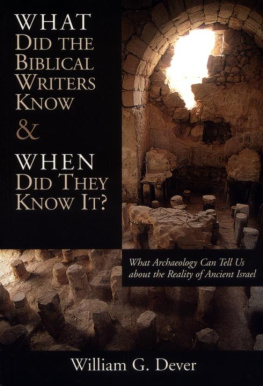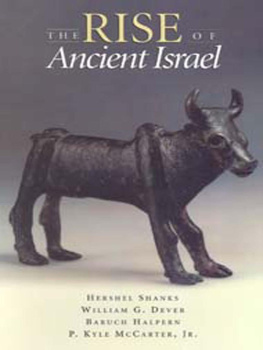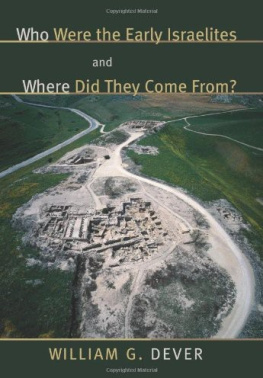William G. Dever




For G. Ernest Wright (1909-1974) my teacher
This book has been 35 years in the making, and readers may be interested to know what has gone into it. In any case, the "ideology" of writers is in the air today, so I shall be up-front about how my own was shaped.
I was reared on the Bible, in a series of small towns in the South and Midwest, as well as in Jamaica, where my father was a preacher in various churches (he would never have said "clergyman"). Although I see in retrospect that he was no doubt a rather old-fashioned fundamentalist, I remember him not for his orthodoxy, but as a warm and compassionate man whose life was centered upon what he believed to be the Bible's eternal truths and values. I can still hear the cadence of his booming voice as he read Scripture from the pulpit; and I suspect that some of my own homiletical style in the classroom and in popular lectures comes from him.
I went from a small Christian liberal arts college in Tennessee to a liberal Protestant theological seminary, where for the first time I was exposed to the critical study of the Bible. I resisted mightily, knowing that my faith was at risk. But in the end I was won over to the love, and the risks, of learning, so in 1960 I went on to Harvard to do a doctorate in biblical theology. That was how I met Professor George Ernest Wright, who knew me better than I knew myself and set me on the path to a career in archaeology, starting with fieldwork under him at Shechem in 1962. I abandoned theology, but I continued to read in the field. However, I served as a Congregational minister in a liberal parish throughout my years at Harvard, and found it a positive experience. I began to see something of the wider world.
Upon graduation I went to Israel for a year at the Hebrew Union College - Jewish Institute of Religion; fell under the spell of Rabbi-archaeologist Nel son Glueck; and stayed on for 11 years. I became director of that school, and later director of the W. F. Albright Institute of Archaeological Research in Jerusalem, as well as directing excavations at Gezer, Shechem, West Bank sites, and elsewhere. I soon took up an interest in trends in biblical and Syro-Palestinian archaeology (and helped to set a few). But above all, I began to see how the realia of archaeology could illuminate ancient Israel. And I caught a vision of a dialogue between archaeology and biblical studies.
In 1975 I returned somewhat reluctantly to the United States to take up an academic career at a university renowned for the "new," anthropologicallyoriented archaeology. In addition to teaching and writing, I did a great deal of traveling and lecturing to popular audiences and experienced the satisfaction of communicating the results of archaeology and biblical studies to a wider public. At the same time, I began to turn my attention from fieldwork to larger syntheses, especially to the possibilities of a new style of "biblical archaeology." I also converted to Judaism during this period, at least nominally - although I am not a theist, and indeed remain a secular humanist. But the Jewish tradition suits me in many ways.
In 1992 I read Philip R. Davies' In Search of "Ancient Israel" (Sheffield: JSOT) and saw immediately a new, irresistible challenge. By 1995 I was writing to oppose the "revisionists," as some called them. Gradually I began to immerse myself in "revisionist" and "postmodern" literature, intuitively sensing that this was leading me to a larger work - the present volume, as it turned out.
Why did I write this book? Because I had to, not only to counter the "revisionists"' abuse of archaeology, but to show how modern archaeology brilliantly illuminates a real "Israel" in the Iron Age, and also to help foster the dialogue between archaeology and biblical studies that I had always envisioned.
A word of warning to the reader. This is meant to be a "popular" book, designed to be accessible to the nonspecialist, so it may be at times overly simplistic, and it is certainly polemical. Yet for those who wish to pursue some scholarly matters further, there are detailed footnotes and references.
For further information on the dozens of archaeological sites and topics discussed here, I recommend several handbooks, especially The New Encyclopedia of Archaeological Excavations in the Holy Land, ed. Ephraim Stern (Jerusalem: Israel Exploration Society and Carta, 1993); and Amihai Mazar, Archaeology of the Land of the Bible, 10,000-586 B.C.E. (New York: Doubleday, 1990).
I want to acknowledge many who contributed to this book in many ways that they probably never imagined. My parents inculcated in me not only a love of the Bible, but a devotion to duty and a certain moral earnestness that has (I hope) informed everything that I have ever done. To Professor George Ernest Wright, my teacher and mentor, I owe more than I can say. My Israeli archaeo logical colleagues over the past 35 years have shared with me the thrill of discovery and have challenged me in many ways. From my "public," I have learned that archaeology really matters, and is always exciting. I must also thank my many graduate students, who probably taught me more than I taught them, and who remain my most satisfying achievement. The future is theirs.
I with to thank my colleague, Prof. J. Edward Wright, whose reading of the manuscript in a draft version saved me from several errors in the field of biblical studies, but who is not to be blamed for the remaining idiosyncrasies.
Finally, I express my appreciation to my family - wives and children - who have kept me part-time in the real world, while I was mostly off tilting at various windmills.
WILLIAM G. FEVER
Tucson, Arizona
Turn-of-the-millennium












